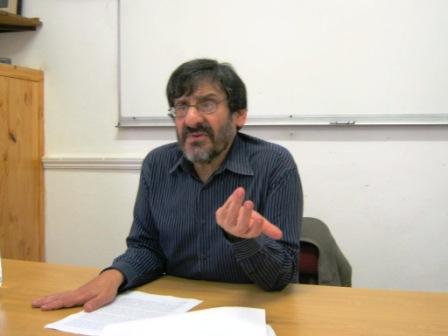
Social partnership has not failed us — it has not been tried. A key feature of events since Marikana is not something that happened but something that didn’t: there has been no serious attempt to get business, labour and the government together to discuss a response, either at the National Economic Development and Labour Council or at any other forum. This seems difficult to explain, given that, only a while ago, the air was thick with talk of an economic Codesa.
There is, to be fair, not much that national talks between the major economic actors could do to end a labour dispute in which workers do not want to be represented by a union. But Marikana highlighted a reality that they can address — that social partnership is not working here, despite all the lip service that has been paid to it.
The most obvious sign is not the strike or even that strikers were shot, but the conditions in which the miners live.
Reports showing the appalling conditions in the Marikana area have been greeted by mutual finger-pointing. The mining industry blames local government: it says it allocated money to it to fix the problem but that it has done nothing. President Jacob Zuma blames the company: other employers, he says, have addressed the housing problem but Lonmin has not. The unions appear to blame the government and business.
The question is not who is right. It is that none of this is meant to happen in a country that takes co-operation between the major economic actors seriously. If the parties were working together to address society’s challenges, the area around Lonmin would not be a shack settlement in which sewage is reported to run in the streets and they would not be blaming each other.
If they were serious about co-operation, the reports would already have prompted them to get together to discuss how to fix the problem. They would also be talking about the other issues that Marikana has made visible, which it is in their power to fix. One response to this failure of co-operation is to insist that our problems cannot be addressed by getting business, labour and the government to talk about them because they need action, not talk. This common view assumes that the solutions are obvious and all we need to do is implement them.
The problem is that no one can agree on what the "obvious" solutions are. As reaction to miners’ living conditions shows, the parties differ on what the problem is, let alone how it should be solved.
This might not matter if one of the parties was powerful enough to impose its solution on the others. But, as the stalemate over the living conditions — and the labour disputes themselves — show, no one can do that. So problems are not addressed because the major interests are convinced that all that is needed is for everyone else to agree to implement their solution.
Until this year, this applied more to the private parties than to the government. Whatever else it may do wrong, the government does at least signal from time to time that it wants to talk to business and labour. But, for much of this year, it has been far too busy trying to show that it can deal with problems on its own and has made no serious effort to make this conversation happen.
It should be clear to it by now that the budget speech and other government documents, which insist that it can address our problems on its own by rolling out infrastructure and fixing public management, have not brought solutions because the government cannot fix anything unless it works with business, labour and citizens.
But the same goes for the other interests. For business and labour, events in the platinum industry are a graphic reminder of what life looks like without effective dialogue. Both now have evidence of the need to engage with each other.
It has been fashionable to talk of Marikana as a watershed. In itself, the strike and the events that followed it are not a turning point. We have had labour disputes before and will have them again — we have had far fewer strikes this year than last and our labour relations system is not coming apart. That people were killed raises worrying issues about violence here, but they are not new — they have been with us for decades.
Marikana could become a watershed — but only if the major economic actors see it as a warning of what happens when they believe they don’t need the others.
Despite all the talk of social dialogue in the past two decades, events on the platinum mines suggest that the organised interests have still not recognised that their choice is between blaming each other for inevitable failure or compromising with each other to make progress.
If Marikana persuades them to reject the first and try the second, the claim that it is a turning point could become not a nice sounding phrase but a reality.
• Friedman is director of the Centre for the Study of Democracy at Rhodes 老虎机游戏_pt老虎机-平台*官网 and the 老虎机游戏_pt老虎机-平台*官网 of Johannesburg. This article was published on Business Day.
